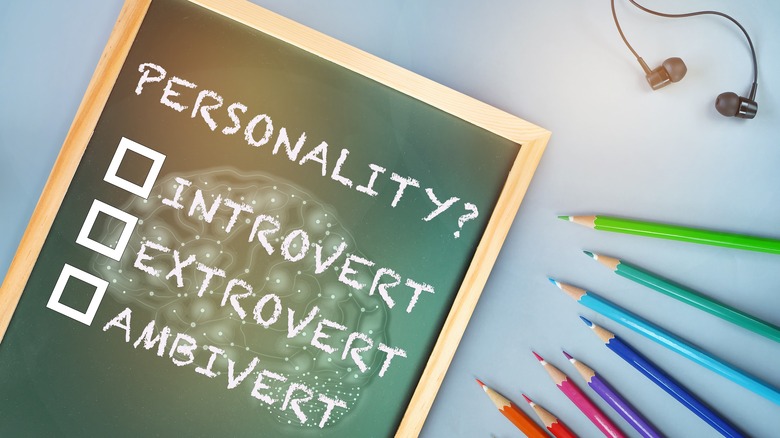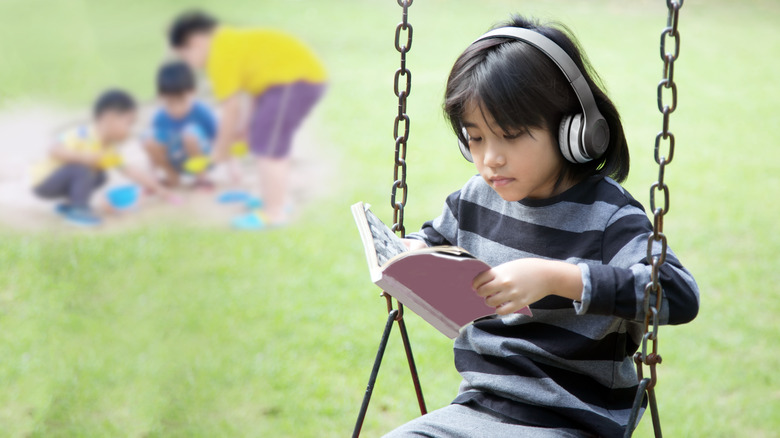Are You More Introverted Or Extroverted And What Does This Mean For Your Relationships?
Would you rather spend time reading your favorite book and snuggling up with your pet or attending a party and dancing with friends on a typical Saturday night? Whichever you prefer could say a lot about your personality and how you might behave in social situations. In the early 1900s, Swiss psychologist Carl Jung observed that people seemed to move about the world differently, depending on whether they were more reserved or outgoing. As described further in Simply Psychology, Jung believed everyone carried both introverted and extroverted traits inside them, but that there was a natural tendency to lean toward the state that was most comfortable for them.
Since his theory was introduced, a growing number of researchers have investigated how these personality differences might influence social behavior. The term "ambivert" has since been added into the mix, describing the balance between having an introverted and extroverted personality (per MindBodyGreen). Ken Page, a psychotherapist, shared in an interview with MindBodyGreen that the divide between introversion and extroversion is not so cut-and-dry. He believes that everyone falls somewhere in the middle of the spectrum, likely making us ambiverts.
Interestingly, there have been studies conducted to examine whether introverts and extroverts have differences in brain activity. As reported in a 2013 study published in Frontiers in Human Neuroscience, neuroscientists discovered that extrovert participants showed greater reward system activation when performing tasks in the laboratory. The reward system of the brain is associated with the neurotransmitter dopamine, which facilitates memory, movement, and motivation.
How do these personality types affect relationships?
One may have difficulty determining whether they are more introverted or extroverted. As Page suggested to MindBodyGreen, there may be times when you would rather be alone, and other times when you enjoy being around people. However, you may find yourself in one of these personality states more often, so it's worthwhile to consider the common characteristics of each.
According to Verywell Mind, those who lean towards introversion may enjoy socializing in smaller groups or one-on-one, rather than being surrounded by many people. These individuals can become overwhelmed by stimuli in their environment, and recharge their energy levels when they are alone. As a result, introverted people may prefer to keep a smaller circle of close-knit friends, rather than having many acquaintances. Because introverted people like to spend time alone, others may perceive them as shy or reserved and might find it more difficult to approach or become close to them.
Those who are more extroverted flourish in social situations and love being around people. They tend to gain energy from social stimuli, rather than being overwhelmed by them. On the contrary, being alone may actually drain their energy, as explained by Healthline. Extroverted people tend to make friends easily, as they enjoy talking to new people, and often have a large circle of friends or acquaintances. While introverted people may internalize their thoughts and feelings, extroverted people prefer to talk through personal issues with others and tend to be more spontaneous.


